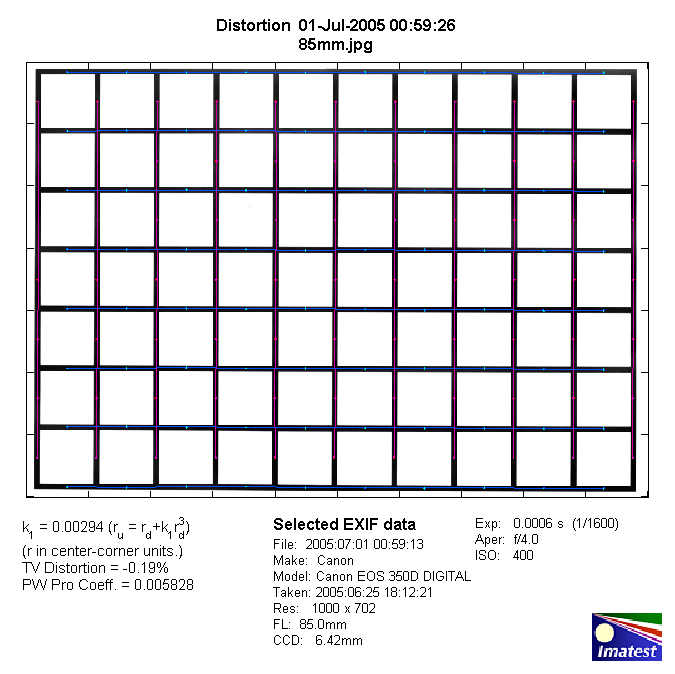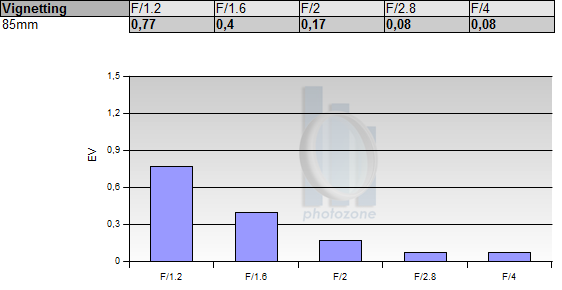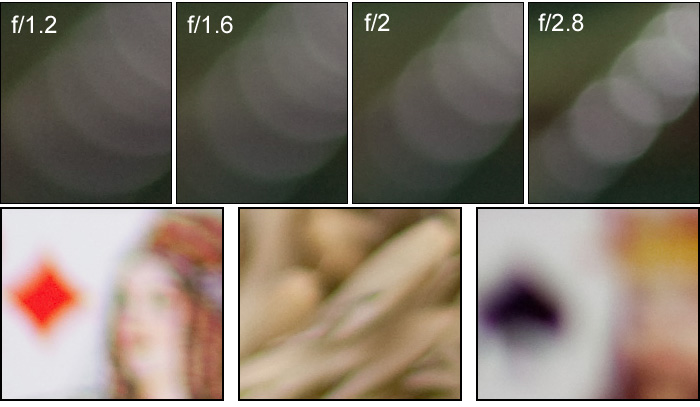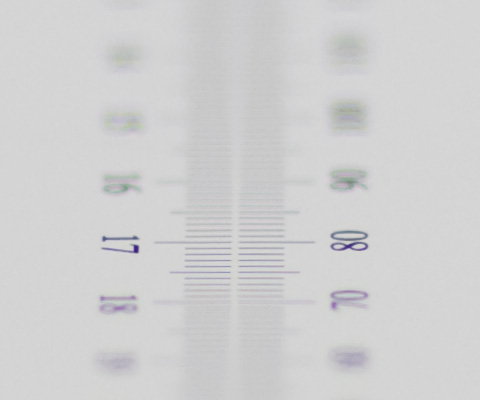|
Canon EF 85mm f/1.2 USM L II - APS-C Lab Test / Review - Analysis |
|
Lens Reviews -
Canon EOS (APS-C)
|
|
Page 2 of 2

Distortion
The Canon lens shows a negligible level of barrel distortion (0.2%) which is not field relevant anymore.

The chart has been recycled from the previous review - this characteristic cannot
change just by using a different APS-C DSLR for testing.
Vignetting
Ultra-large aperture lenses tend to produce some vignetting at max. aperture but on
an APS-C DSLR it's not all that bad due to the sweet spot effect here. At around ~0.8EV
(f/1.2) the problem can be visible at times but if you stop down a little it's not an issue
anymore.

MTF (resolution & chromatic aberrations)
The lens performed highly impressive in our lab tests and that's across the
tested aperture range. At f/1.2 the center resolution is already excellent which is
quite amazing at this setting. The border quality is a bit weaker but still very good
in absolute terms. Stopping down to f/2.8 lifts the borders to excellent levels. The
sweet spot is reached around f/4. Diffraction effects reduce the quality beyond but the lens
is still capable of delivering excellent results across the frame at f/8.
Please note that the MTF results are not directly comparable across the different systems!
Below is a simplified summary of the formal findings. The chart shows line widths per picture height (LW/PH) which can be taken as a measure for sharpness.
If you want to know more about the MTF50 figures you may check out the corresponding Imatest Explanations
Lateral Chromatic Aberrations (CAs)
Lateral chromatic aberrations (color shadows at harsh contrast transitions) are extremely well controlled and not field relevant.

Bokeh
The bokeh (the quality of the out-of-focus blur) is a primary aspect for an ultra large aperture lens and the 85mm L II does not disappoint us here. The blur potential is more than extreme! If required this lens will smoothen even the most difficult
back- and foregrounds. The technical quality of the bokeh is also excellent - at least in the APS-C scope.
Out-of-focus highlights are rendered perfectly and the blur is very smooth.

Bokeh Fringing / Longitudinal Chromatic Aberrations (LoCA)
Bokeh fringing at large aperture is a problem which is often not well corrected even by the very best
lenses and the EF 85mm f/1.2 L II is no exception to the rule. If you have a look at the provided
sample crops below you should be able to spot a purple halo in front of the focus zone
and a green one beyond. The effect is clearly visible from f/1.2 till f/2.8.
|
Move the mouse cursor over the f-stop marks below to observe the respective LoCAs
|
| f/1.2 |
f/1.6 |
f/2 |
f/2.8 |
|

|
Verdict
The Canon EF 85mm f/1.2 USM L II is one of the little wonders in the Canon lens lineup - at least
on an APS-C DSLR. The center performance is nothing short of breathtaking and the borders are only
slightly weaker. There's a bit of vignetting at f/1.2 but from a field perspective it's probably not
a real issue and from f/2 onwards it's not relevant anymore. Distortions and lateral CAs are extremely
well controlled. The quality of the bokeh is a shining highlight of the lens - less so the amount
of LoCAs (bokeh fringing) although that's a rather typical problem in this lens class.
The build quality is up to pro standards but we expected no less from a lens in this price class.
Compared to its predecessor the AF speed has been doubled and while it may not be blazingly fast it's
certainly good enough now. The "manual focus-by-wire" approach may not catch many fans but it's
more a aspect to get used to rather than a real weakness.
All-in-all an exceptional lens!
|